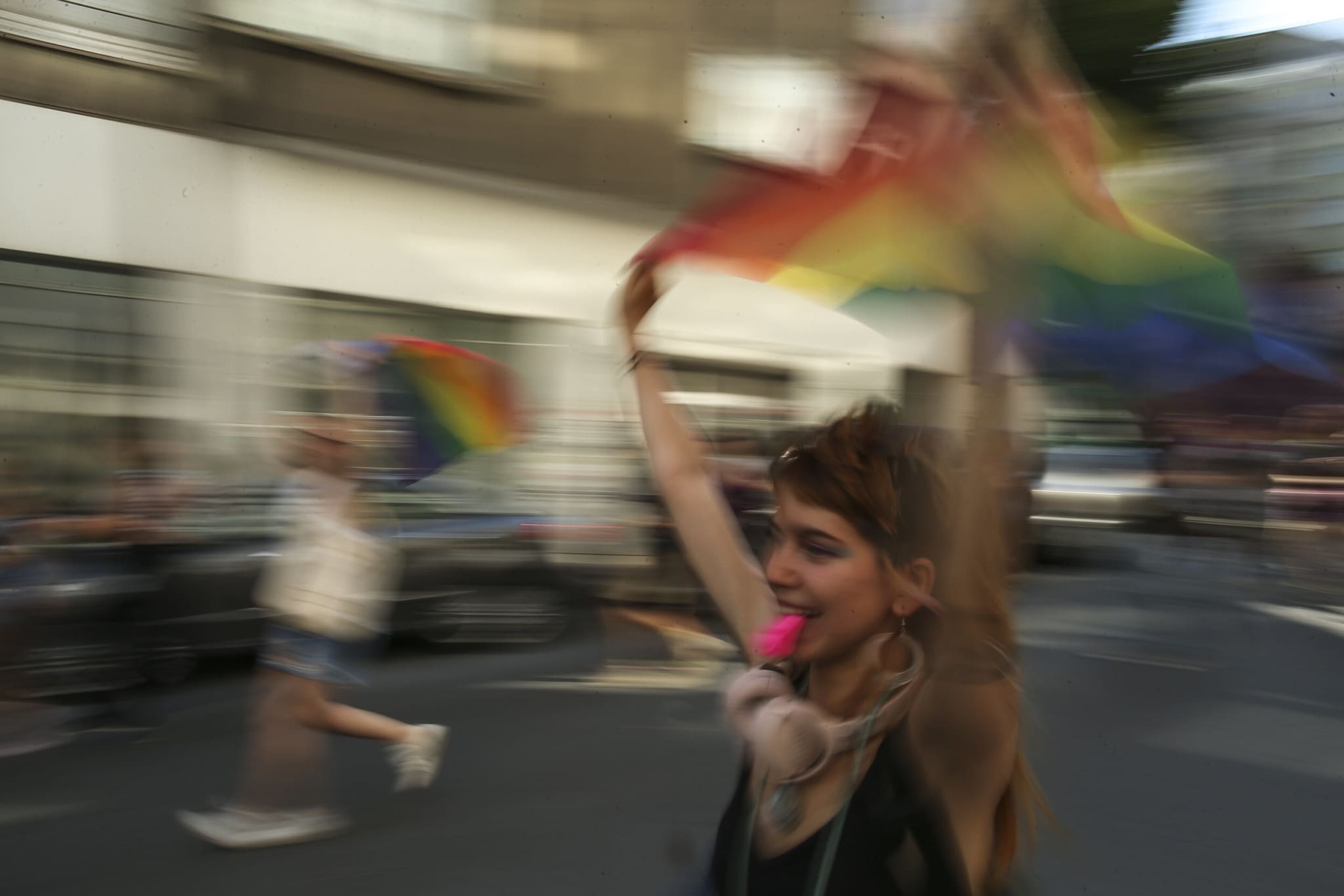Dozens of LGBT activists have been arrested ahead of a planned demonstration in Istanbul to celebrate Pride, an event held in many Western nations and which has been banned by Turkish authorities in previous years under the guise of security concerns.
Despite the banning of Sunday’s unofficial pride march, hundreds of supporters with rainbow flags gathered around the planned start, prompting police to intervene before the demonstration had even begun, according to the AFP news outlet.
Dozens of people, including a news station photographer, ended up in custody as police in full gear raided several bars around the central Taksim Square in Istanbul.
Kaos GL, a non-governmental organization that raises issues related to the LGBT community, registered over 150 arrests. The people remained in custody until the early hours of the evening, and the human rights organization Amnesty International called for their “unconditional and immediate release” on Twitter.
In major world cities, including New York, a wave of so-called pride marches went ahead on Sunday as planned, as supporters of the pride movement celebrated a community of sexual minorities and transgender people.
Without similar repression, pride marches took place in several American cities over the weekend. On Sunday, in addition to New York, they were scheduled in Chicago and San Francisco. The New York march started around noon local time with cheers and confetti in the air, but it was not just a traditional festival of colors, music, and dance, according to AP.
“We’re here to make a statement,” said 31-year-old activist, Mercedes Sharpe. “I think it is about making a point, rather than how we’ve normally celebrated it all the other years. This one is really gonna stand out. I think a lot of people are angry, not even just women, angry men, too.”
The atmosphere at U.S. events was marred by the dramatic verdict of the U.S. Supreme Court to revoke the constitutional right to abortion, published on Friday. Although the judgment, which overturns a right American women enjoyed for almost 50 years, does not directly affect issues such as the right of same-sex couples to marry, the arguments of the conservative judicial majority raise concerns in this regard.
According to a participant in Saturday’s pride event in Cincinnati, which attracted more than 100,000 people, the argument used in the verdict on abortion could also be applied to other precedents guaranteeing freedom in personal decisions, such as the use of contraception or the choice of a life partner.
The author of the majority court opinion, Samuel Alito, was also aware of these concerns, assuring in the decision that the approach formulated on the issue of abortion does not concern anything else. However, the three liberal members of the Supreme Court who, together issued a dissenting opinion on the verdict, clearly do not believe this assurance either.






